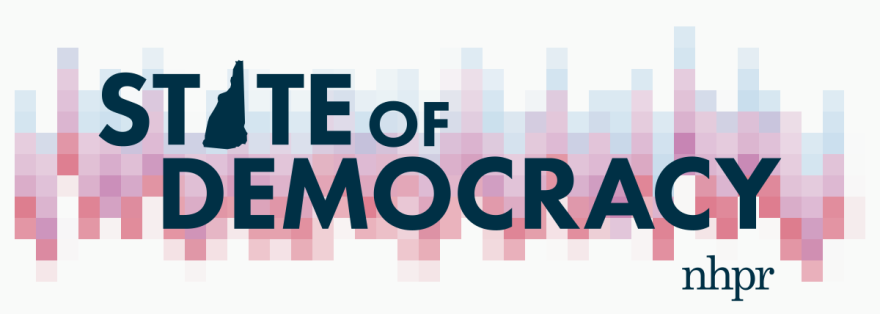If you’ve spent any time following the Republicans running for governor this year, you’ve probably heard plenty of talk about the need to jumpstart New Hampshire’s economy.
Three of the candidates – State Sen. Jeanie Forrester, Manchester Mayor Ted Gatsas and Executive Councilor Sununu – have formal economic policy plans. A fourth, State Rep. Frank Edelblut, has a broad outline of his economic goals on his campaign website.
On paper, at least, the candidates share some priorities: cutting red tape, bringing down energy and healthcare costs, and continuing to cut state business taxes to boost job creation.
Scroll down for a chart outlining the key points in the candidates' economic proposals.
“I think it’s clear that the primary focus of the Republican plans is encouraging a lowering of the cost of businesses,” said Steve Norton, executive director of the New Hampshire Center for Public Policy Studies.
But Norton cautioned that only so much of those costs are within a governor’s control: A governor could advocate for more cuts to corporate taxes much more easily than he or she can control energy and healthcare costs, which are influenced by a larger set of economic forces.

And given the relatively healthy state of the New Hampshire economy these days, Norton said there’s another important part of the puzzle to consider: how to increase the size and skills of New Hampshire’s workforce.
“The real question I would have is, when you have an economy that most think we’re in good times, you’re seeing job growth, the constraint is probably the workforce rather than job creation itself,” Norton said.
That’s not to say the candidates are ignoring workforce development– but it does take a backseat to other priorities, like lowering business taxes or trying to get more companies to move to New Hampshire.
(Interactive: Click anywhere below each candidate's name for more details on their individual proposals.)
Forrester, for example, wants to launch a “Career Partnership Program” to connect students with businesses for mentoring and training — mirroring an initiative she oversaw on a local level in Meredith.
Gatsas, meanwhile, wants to expand the full-time, four-year technical high school model he helped to launch in Manchester to other districts around the state.
Sununu has proposed student loan assistance for “high-demand” jobs like nurses, recovery clinicians and teachers, and he’s also proposed offering grants to allow more recovery centers to offer job training.
Edelblut says he views the community college system as “a hidden gem,” and says he wants to expand opportunities to connect those institutions with both high schools and companies around the state.
For the most part, though, the economic proposals offered up by this year’s Republican candidates for governor don’t get into too much detail — in terms of specific cuts they’d seek, what their proposals might cost or how they’d go about implementing their plans.
In a recent column for the Union Leader, Charlie Arlinghaus, the director of the Josiah Bartlett Center for Public Policy, lamented this lack of specifics in this year’s gubernatorial campaign.
“I decided to read all of the candidates’ ‘economic plans,’ at least until I got depressed,” Arlinghaus wrote. “Candidates are sorely tempted by communications consultants who write meaningless drivel like ‘bring a new focus to planning’ or ‘promote collaborative engagement’ or ‘be responsive and attentive to business and their needs.’”
In an interview, Arlinghaus said he understands why candidates are tempted to err on the side of generalities. Getting too specific with policy details, especially during a primary, could open them up to more attacks from their opponents — and the media, in general, is less focused on policy details in its coverage of the primary campaigns.
“I would put this year kind of in the middle. It’s not the most substance free year, and it’s not the most substantive year,” Arlinghaus said. “Most of the proposals fall in the category of… there are two or three things in them where you hear something and you think, ‘Oh, that’s interesting, tell me more!’ But very few of them tell you more on anything.”
Beyond a lack of policy details, the plans put forward by the candidates also — on paper, at least — paint the state’s economy with a fairly broad brush. There’s little acknowledgement, Norton noted, of the regional differences we’re seeing right now: the economic growth in the Seacoast and greater Manchester area vs. the lagging recovery from the recession in the North Country, for instance.
“One of the questions I would have if I were a local person, of any of the Republican candidates, is: How is our area different, and how do you shape your ideas to meet the needs of our local ecology and economy?” Norton said.
TO READ THE CANDIDATES' PLANS:
- Frank Edelblut: Protecting Jobs & Our Economy
- Jeanie Forrester: Economic Plan for the People
- Ted Gatsas: The Gatsas Granite Growth Agenda
- Chris Sununu: Blueprint for Economic Growth in NH








